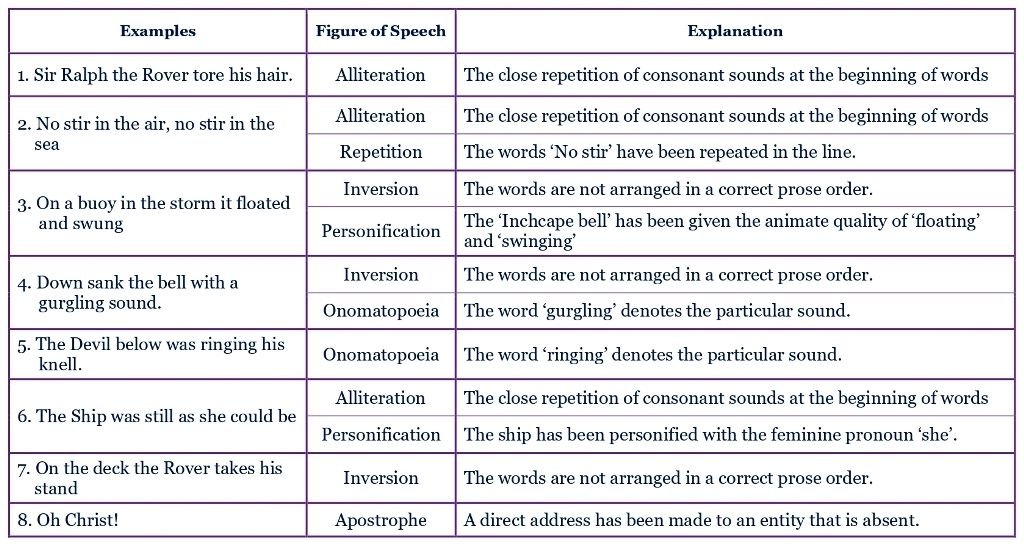2.3 The Inchcape Rock- Maharashtra State Board- Class 12-English

2.3: ‘The Inchcape Rock’
Maharashtra State Board
Class 12, English

Robert Southey

Robert Southey (August 12, 1774 – March 21, 1843) was a prolific English poet, historian, biographer, and essayist, who served as Poet Laureate of the United Kingdom from 1813 until his death. A major figure in the Romantic literary movement, Southey’s works spanned various genres, from poetry and prose to critical essays and historical writings.
Southey was born in Bristol, England, to Thomas Southey and Margaret Hill. His father was a linen draper. At the age of three, Southey was sent to live with his aunt, Elizabeth Tyler, who had a significant influence on his early education. He attended Westminster School, but was expelled for producing a satirical publication. He later enrolled at Balliol College, Oxford, though he left without completing a degree.
Southey’s early career was marked by his association with the Lake Poets, a group that included William Wordsworth and Samuel Taylor Coleridge. His poetry often explored exotic and mythical themes, with notable works such as:
- “Joan of Arc” (1796): An epic poem that gained him early recognition.
- “Thalaba the Destroyer” (1801): An Arabian tale told in unrhymed verse.
- “The Curse of Kehama” (1810): Another epic exploring Hindu mythology.
In 1813, Southey was appointed Poet Laureate of the United Kingdom, a position he held until his death in 1843. Though his poetic output declined during his tenure, he continued to write and engage in public affairs.
Poem: ‘The Inchcape Rock’
The Inchcape Rock is a ballad written by Robert Southey, first published in 1802. The poem is based on a Scottish legend about a dangerous reef off the east coast of Scotland known as the Inchcape Rock. The rock posed a significant hazard to sailors, particularly because it was submerged at high tide and difficult to see.
The poem tells the story of a benevolent abbot who places a bell on the Inchcape Rock to warn mariners of the danger. The bell, attached to a buoy, rings in rough weather, providing an audible warning to ships in the vicinity. The villain of the poem, a pirate named Sir Ralph the Rover, is angered by the bell’s usefulness and decides to sabotage it. He cuts the bell from its mooring, letting it sink into the sea. However, Sir Ralph’s act of malevolence backfires when, on a subsequent voyage, his ship encounters a storm. Without the warning bell, his ship strikes the Inchcape Rock and sinks, leading to his own demise.
Karma and Retribution: The poem underscores the idea of poetic justice. Sir Ralph’s malevolent act ultimately leads to his own destruction.
Good vs. Evil: The abbot’s altruistic deed is juxtaposed against Sir Ralph’s malicious intent, highlighting the moral contrast between the two characters.
Nature’s Power: The treacherous nature of the sea and its ability to claim lives is a central theme, emphasizing the peril faced by sailors.
- Southey employs a simple, narrative style typical of ballads, with a regular rhyme scheme (AABB) and straightforward language.
- This approach makes the poem accessible and engaging, suitable for oral recitation.
- “The Inchcape Rock” is one of Southey’s most popular poems, widely anthologized and studied in English literature courses.
- Its moral lesson, memorable narrative, and rhythmic qualities contribute to its lasting appeal.

Poem
No stir in the air, no stir in the sea,
The ship was still as she could be,
Her sails from heaven received no motion,
Her keel was steady in the ocean.
Without either sign or sound of their shock
The waves flow’d over the Inchcape Rock;
So little they rose, so little they fell,
They did not move the Inchcape Bell.
The Abbot of Aberbrothok
Had placed that bell on the Inchcape Rock;
On a buoy in the storm it floated and swung,
And over the waves its warning rung.
When the Rock was hid by the surge’s swell,
The mariners heard the warning bell;
And then they knew the perilous Rock,
And blest the Abbot of Aberbrothok.
The Sun in heaven was shining gay,
All things were joyful on that day;
The sea-birds scream’d as they wheel’d round,
And there was joyaunce in their sound.
The buoy of the Inchcape Bell was seen
A darker speck on the ocean green;
Sir Ralph the Rover walk’d his deck,
And he fix’d his eye on the darker speck.
He felt the cheering power of spring,
It made his whistle, it made him sing;
His heart was mirthful to excess,
But the Rover’s mirth was wickedness.
His eye was on the Inchcape float;
Quoth he, ‘My men, put out the boat,
And row me to the Inchcape Rock,
And I’ll plague the Abbot of Aberbrothok.’
The boat is lower’d, the boatmen row,
And to the Inchcape Rock they go;
Sir Ralph bent over from the boat,
And he cut the Bell from the Inchcape float.
Down sunk the Bell with a gurgling sound,
The bubbles rose and burst around;
Quoth Sir Ralph, ‘The next who comes to the Rock
Won’t bless the Abbot of Aberbrothok.’
Sir Ralph the Rover sail’d away,
He scour’d the seas for many a day;
And now grown rich with plunder’d store,
He steers his course for Scotland’s shore.
So thick a haze o’erspreads the sky
They cannot see the Sun on high;
The wind hath blown a gale all day,
At evening it hath died away.
On the deck the Rover takes his stand,
So dark it is they see no land.
Quoth Sir Ralph, ‘It will be lighter soon,
For there is the dawn of the rising Moon.’
‘Canst hear,’ said one, ‘the breakers roar?
For methinks we should be near the shore.’
‘Now where we are I cannot tell,
But I wish I could hear the Inchcape Bell.’
They hear no sound, the swell is strong;
Though the wind hath fallen they drift along,
Till the vessel strikes with a shivering shock,―
‘Oh Christ! It is the Inchcape Rock!’
Sit Ralph the Rover tore his hair;
He curst himself in his despair;
The waves rush in on every side,
The ship is sinking beneath the tide.
But even in his dying fear
One dreadful sound could the Rover hear,
A sound as if with the Inchcape Bell,
The Devil below was ringing his knell.

ICE BREAKERS
Activity: Prepare a Word-register related to ‘Marine Life’:
Algae, Anemone, Aquarium, Barnacle, Barracuda, Bioluminescence, Blowhole, Blue Whale, Coast, Coral, Crustacean, Current, Dolphin, Dorsal Fin, Echinoderm, Estuary, Fish, Fluke, Food Chain, Gill, Habitat, Invertebrate, Jellyfish, Kelp, Krill, Lobster, Mollusk, Narwhal, Nautilus, Octopus, Orca, Oceanography, Plankton, Porpoise, Quahog, Reef, Reproduction, Sailors, Sand, Seashore, Seaweed, Shark, Shellfish, Ship, Sponge, Tidal Zone, Turtle, Urchin, Viperfish, Waves, Whale etc.

Activity: The functions of the Lighthouse are:
- To show the direction
- To guide maritime navigation
- To mark dangerous coastlines, reefs, and shoals
- To indicate safe entry points to harbours
- To assist in aerial navigation
- To serve as landmarks for nautical charts
- To warn hazardous areas during inclement weather

Activity: The various famous rocks in the world and the places:
- Balancing Rock – Mahabalipuram
- Vivekananda Rock Memorial – Kanyakumari
- Ayers Rock (Uluru) – Australia
- Stonehenge – England
- Giant’s Causeway – Northern Ireland
- Gibraltar Rock (Rock of Gibraltar) – Gibraltar
- Mount Rushmore – USA
- Easter Island Moai – Chile
- The Wave – USA
- Devils Tower – USA
- El Capitan – USA
- Sugarloaf Mountain – Brazil
- Fairy Chimneys – Turkey
- Perce Rock – Canada
- Old Man of Storr – Scotland
- Balanced Rock – USA
- Brimham Rocks – England

Activity: Narrate a story about someone who destroyed or spoilt someone else’s good work:
Once upon a time, in a peaceful village, there lived a little girl named Ritu. Ritu loved planting flowers. She had a beautiful garden full of colorful flowers that she cared for every day.
One sunny morning, Ritu decided to plant a new row of sunflowers. She worked very hard, digging the soil, planting the seeds, and watering them carefully. She was very excited to see them grow tall and bright.
But nearby lived a boy named Rajat. Rajat liked to play pranks and sometimes didn’t think about how his actions affected others. That afternoon, while Ritu was inside her house, Rajat saw her garden. He thought it would be funny to play a trick.
Rajat sneaked into Ritu’s garden and started pulling out the freshly planted sunflower seeds. He laughed as he threw them around, not thinking about how hard Ritu had worked. Then, he ran away, leaving the garden in a mess.
When Ritu came back outside, she was heartbroken. Her carefully planted seeds were scattered all over. She felt sad and didn’t understand why someone would do such a thing.
The next day, the village had a meeting, and Ritu told everyone what had happened. Rajat felt very guilty when he saw how upset Ritu was. He realized that his prank was not funny at all, but mean and hurtful.
Rajat decided to make things right. He went to Ritu and apologized. “I’m really sorry, Ritu. I didn’t mean to hurt you. I just thought it would be a funny joke, but I see now that it wasn’t.”
Ritu, being kind-hearted, forgave Rajat. Rajat then offered to help her replant the sunflowers. Together, they worked in the garden, planting the seeds again. Rajat learned how much effort it took and understood the importance of respecting others’ hard work.
In a few weeks, the sunflowers began to grow, tall and bright. Ritu and Rajat became good friends, and Rajat never played a hurtful prank again. He learned that being kind and helping others was much more fun than causing trouble.
And so, Ritu’s garden became more beautiful than ever, and the village was happy and peaceful once again.

Activity: Discuss the following expressions:
a. As you sow so shall you reap.
“As you sow, so shall you reap” means that the actions you take will have consequences. If you do good things, good things will happen to you. If you do bad things, bad things will happen to you. It’s like planting seeds: if you plant good seeds, you’ll get good plants; if you plant bad seeds, you’ll get bad plants.
b. Crime gets its own punishment.
“Crime gets its own punishment” means that if you do something wrong or commit a crime, you will eventually face consequences or punishment for it. Bad actions lead to bad outcomes.
c. What goes around comes around.
“What goes around comes around” means that the way you treat others will come back to you. If you are kind and good to people, they will be kind and good to you. If you are mean and hurtful, you will face the same in return.
d. Tit for tat.
“Tit for tat” means responding to someone’s actions with similar actions. If someone is kind to you, you are kind back. If someone is mean to you, you respond in the same way. It’s about giving back what you receive.
e. Evil digs a pit for others but falls into the same.
“Evil digs a pit for others but falls into the same” means that when someone tries to harm others, they often end up harming themselves instead. Bad intentions and actions can backfire on the person who planned them.

BRAINSTORMING
Activity: Narrate the scene described in the beginning of the poem:
The day is calm and peaceful at sea. The water is very still, with no waves at all. The sun is shining brightly in the clear sky, making the sea look like a shiny mirror. Seagulls are flying slowly above, making soft calls.
The Inchcape Rock is hidden just under the water. It is dangerous for ships, but today the sea is so calm that the rock seems safe. The only sound is the gentle splash of water against the rock Nearby, there is a warning bell placed by the Abbot of Aberbrothok. The bell is on a floating buoy and rings to warn sailors when the sea is rough. But today, the sea is so calm that the bell is silent, adding to the quiet and peaceful scene.

Activity: Complete the following statements:
a. The Abbot of Aberbrothok placed a bell on the Inchcape rock because he wants to help sailors navigate safely as well as to make it safer for ships to sail in that area.
b. The mariners were grateful to the Abbot of Aberbrothok because the bell he placed on the Inchcape Rock helped them avoid danger.
c. The result of the thick haze that covered the sky was that they could not see the sun on high.
d. The Rover in frustration pulled his hair and cursed himself because his ship had struck the Inchcape Rock, leading to a shipwreck.

Activity: Arrange the events in proper sequence as per their occurrence:
a. The waves were so small that they did not move enough to ring the bell at the Inchcape rock.
b. The Abbot of Aberbrothok had placed the bell on a buoy on the rock.
c. There was a thick haze spread over the atmosphere.
d. Ralph bent over from the boat.
e. Sir Ralph cursed himself in despair and in his frustration tore his hair.
Answer:
b. The Abbot of Aberbrothok had placed the bell on a buoy on the rock.
a. The waves were so small that they did not move enough to ring the bell at the Inchcape rock.
d. Ralph bent over from the boat.
c. There was a thick haze spread over the atmosphere.
e. Sir Ralph cursed himself in despair and in his frustration tore his hair.

Activity: Describe the qualities of the Abbot of Aberbrothok in your own words:

Activity: ‘Jealousy’ is the most incurable defect. Justify:
Jealousy is often considered the most incurable defect because it makes people unhappy about others’ successes and good fortune, leading to constant comparison and resentment. This negative feeling can drive people to act meanly or unfairly, damaging relationships and trust. Overcoming jealousy is hard because it comes from deep insecurities and low self-esteem. Even when a jealous person achieves something, they may still feel envious of others, creating a never-ending cycle of dissatisfaction and negativity.

Activity: ‘But the Rover’s mirth was wickedness’. Explain this line in your own words with the help of the poem:
In the poem “The Inchcape Rock,” the line “But the Rover’s mirth was wickedness” means that the Rover’s happiness was actually evil. The Rover, Sir Ralph the Rover, felt joy not because of something good, but because he did something bad. He cut off the warning bell from the Inchcape Rock, which was put there by the kind Abbot of Aberbrothok to help sailors avoid the dangerous rock. The Rover found it funny and enjoyable to remove the bell, thinking it would cause trouble for others. His joy came from causing harm, which is why his mirth (happiness) was considered wickedness (evil).

Activity: Some words in the poem are related to different parts of a ship or a mariner’s life. Given below is the meaning of those terms. Identify the word:
a. Helps in steering the ship – sails
b. The lowest part of the ship – keel
c. Floating object that shows direction – buoy
d. Another name for a ship – boat/vessel
e. Sinking sound – gurgling

Activity: Ballad
A Ballad in English literature is a type of poem or song that tells a story, often about love, adventure, or historical events. It typically has a simple, rhythmic structure with short stanzas (usually four lines each) and a repetitive refrain or chorus. Ballads were originally passed down orally and were popular in the medieval period, making them easy to remember and recite. They often have a narrative style, featuring characters, dialogue, and a plot. Some famous examples include “The Rime of the Ancient Mariner” by Samuel Taylor Coleridge and “Barbara Allen,” a traditional folk ballad.
The features of a Ballad:
- Narrative Structure: Ballads tell a story, often involving dramatic events, love, tragedy, or heroic deeds.
- Simple Language: They use straightforward, accessible language to appeal to a wide audience, making them easy to understand and remember.
- Repetition: Ballads often feature repeated lines or refrains, which help to reinforce the story and make the poem more musical.
- Stanza Form: They typically use quatrains (four-line stanzas), with a rhyme scheme of ABAB or ABCB.
- Rhythm and Meter: Ballads often have a regular meter, commonly alternating lines of iambic tetrameter (four feet) and iambic trimeter (three feet), which gives them a rhythmic, song-like quality.
- Dialogue: Characters in ballads often speak in direct dialogue, which helps to advance the plot and add dramatic effect.
- Supernatural Elements: Many ballads include elements of the supernatural, such as ghosts, magic, or mythical creatures.
- Anonymous and Oral Tradition: Traditional ballads are often anonymous and were originally passed down orally from generation to generation before being written down.
- Incremental Repetition: This is a technique where a line is repeated with slight variations to build suspense or emphasize a point.
- Focus on a Single Event: Ballads often focus on a single, dramatic event rather than a long, complex narrative.

Activity: Select the appropriate figure of speech from the box given below and complete the table:
(Metaphor, Alliteration, Repetition, Personification, Inversion, Simile, Apostrophe, Onomatopoeia)


Activity: Write an Appreciation of the poem, ‘The Inchcape Rock’:

Activity: Compose 4 to 6 lines on ‘Sea’:
The sea is vast, a boundless blue,
Waves whisper secrets old and new.
Its salty breeze, a soothing song,
Where dreams of sailors all belong.
Beneath the moon, the waters gleam,
A tranquil world where mermaids dream.
With every wave, the night grows deep,
The sea, a lullaby for sleep.
The ocean’s roar, a mighty call,
From cliffs so high to shores so small.
Its depths, a realm of mystery,
A tale untold beneath the sea.
Golden sands and seashells bright,
The sea reflects the morning light.
Its endless dance, a timeless grace,
A mirror to the sky’s embrace.
Gulls cry out, the wind does play,
Upon the sea both night and day.
A sailor’s path, a whale’s domain,
In the sea, adventure reigns.
The sea’s embrace, both calm and wild,
A mother’s touch, a spirit’s child.
Its waves, a rhythm pure and free,
A symphony in endless sea.
Upon the shore, where sea meets land,
Waves leave treasures in the sand.
A world of wonder, vast and grand,
The sea holds stories close at hand.
The sea, a canvas, ever new,
With shades of green and deepest blue.
Each wave a brushstroke, swift and true,
A masterpiece in every hue.
Tides come and go, a dance so grand,
They kiss the shore, then leave the sand.
In moonlit nights, they softly glow,
The sea’s sweet song, a gentle flow.
The sea’s horizon, far and wide,
A place where dreams and hopes reside.
With every wave, a journey starts,
The sea, a map of sailors’ hearts.

Activity: Expand the ideas on your own on the following topics:
a. Pride goes before a fall.
“Pride goes before a fall” means that when people become too proud and overconfident, they often make mistakes or experience failure. This saying suggests that excessive pride can cloud judgment and lead to poor decisions. When someone thinks too highly of themselves, they might ignore advice, underestimate challenges, or take unnecessary risks. This can cause them to stumble and fail, teaching a lesson in humility.
An example can be seen in stories where a character boasts about their abilities and then fails spectacularly. For instance, a talented athlete might become so confident in their skills that they stop training hard and begin to dismiss their competitors. As a result, they may perform poorly in a crucial game and lose. The fall, or failure, serves as a reminder that staying humble and recognizing one’s limitations is important to achieving long-term success.
b. Time and tide wait for none.
“Time and tide wait for none” means that time keeps moving forward, and natural events, like the rising and falling of the tide, do not pause for anyone. This saying highlights the importance of seizing opportunities and acting promptly because time does not stop. If you delay or procrastinate, you might miss important chances that won’t come around again. Just as the tide follows its own schedule, time does the same, and once it’s gone, you can’t get it back.
For example, if a student keeps putting off studying for an exam, thinking they have plenty of time, the exam day will eventually arrive, and they might find themselves unprepared. Similarly, in nature, a fisherman must go out to sea at the right time to catch fish when the tide is favorable. If they wait too long, they might miss the best conditions. This proverb teaches us to value time, make the most of the present, and act without unnecessary delays to achieve our goals and make the best use of our lives.
c. Man proposes, God disposes.
“Man proposes, God disposes” means that people can make plans and have intentions, but ultimately, the outcome is determined by a higher power or fate. This saying emphasizes the unpredictability of life and how, despite our best efforts and careful planning, things might not always go as we wish. It reminds us that we do not have complete control over everything that happens and that there are greater forces at play.
For instance, a person might work hard and plan meticulously for a big event, like a wedding or a business launch, but unexpected circumstances like bad weather or sudden illness can change everything. This phrase teaches us to stay humble and flexible, acknowledging that we can only do our best and then accept whatever comes our way. It encourages us to trust in a higher power or fate and to find peace in the understanding that not everything is within our control.
d. Look before you leap.
“Look before you leap” means that you should carefully consider the consequences and risks before taking action. This saying advises caution and thoughtful decision-making to avoid making hasty choices that could lead to problems or regrets. By taking the time to evaluate a situation and think things through, you can make better, more informed decisions.
For example, if someone is considering quitting their job to start a new business, it’s important for them to thoroughly research and plan before making the leap. They should understand the market, assess their financial situation, and have a solid business plan in place. By doing so, they minimize the risk of failure and increase their chances of success. This proverb teaches us the value of patience and careful consideration in achieving our goals and making sound decisions.

Activity: The poem ‘The Inchcape Rock’ begins with- ‘Without either sign or sound of their shock, The waves flow’d over the Inchcape Rock’. It ends with- ‘Till the vessel strikes with a shivering shock.’ On the basis of these lines explain the change in mood of the poem:
The poem “The Inchcape Rock” starts with a calm and peaceful mood. The opening lines, “Without either sign or sound of their shock, The waves flow’d over the Inchcape Rock,” suggest a serene and gentle scene where the waves quietly move over the rock without any disturbance. This creates an image of tranquility and calmness.
However, by the end of the poem, the mood has drastically changed. The final line, “Till the vessel strikes with a shivering shock,” introduces a sudden and violent event. The peaceful waves are replaced by a ship crashing into the rock, causing a dramatic and shocking impact. This shift from calm to chaos highlights the unexpected danger and tragedy, changing the mood from serene to tense and alarming.

also see:






